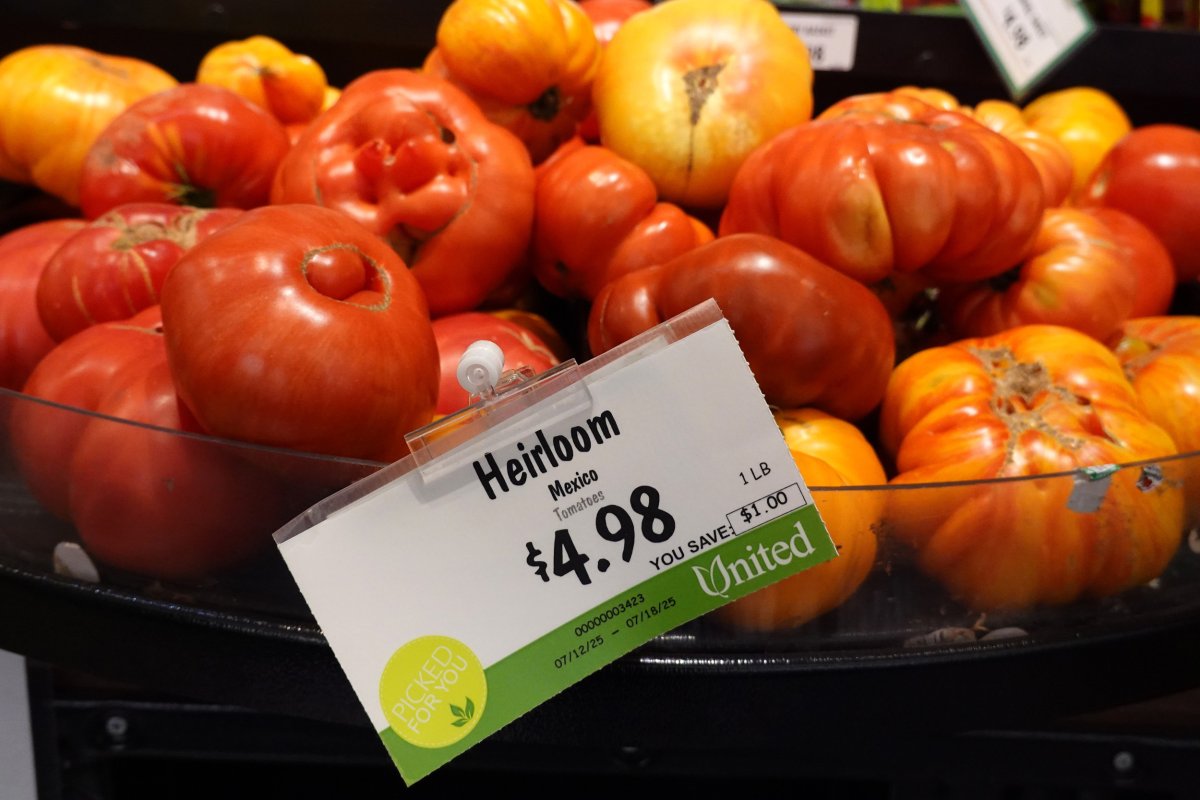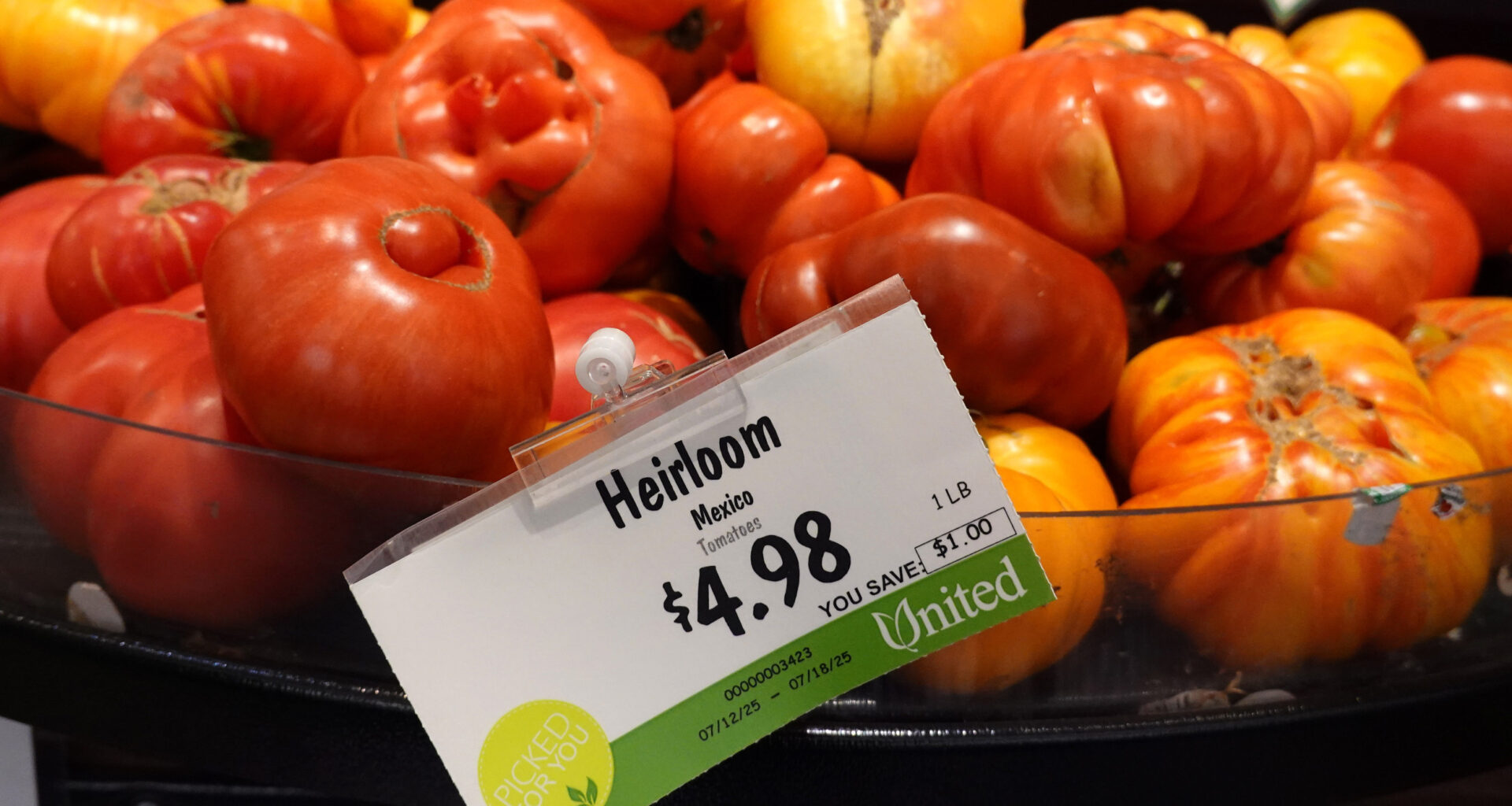Mexico has established minimum export prices for fresh tomato exports to the U.S., after President Donald Trump imposed tariffs on tomatoes and withdrew from a bilateral agreement that would have prevented these from taking effect.
In the joint announcement, published in the federal gazette on Friday, the country’s economic and agricultural ministries said this will allow Mexican tomatoes to maintain access to the key international market.
Newsweek has contacted the ministries via email outside of regular business hours for further information on the order.
Why It Matters
The vast majority of Mexico’s tomato exports are destined for the U.S. According to the U.S. Department of Agriculture, of the estimated 2 million metric tons the country will export in 2025, 1.8 million will end up in the American market. The latest anti-dumping duties imposed by the Trump administration risk disrupting this agricultural trade flow and impacting thousands of jobs in the country.
Mexico’s move is intended to protect its domestic producers from these latest tariffs while preserving internal supplies and staving off downward price pressures. It also comes as the two nations work to finalize a lasting trade agreement.
What To Know
In July, the Department of Commerce announced that the U.S. would be withdrawing from a 2019 agreement which had suspended investigations into whether Mexico was dumping tomatoes— exporting a product below its normal value or price point—in order to gain a competitive foothold in the American market. As well as terminating the agreement, the department announced that the U.S. would be issuing a 17 percent tariff on most imports of fresh tomatoes from Mexico.
Given their dependence on the U.S. market, tomato exporters in Mexico warned that the tariff could significantly destabilize the industry. Moisés Atri, export director for the producer Veggie Prime told The Associated Press that its profit margins were too thin to absorb the new duties and expressed hope that American retail clients would bear some of the costs.

Tomatoes from Mexico are displayed on a grocery store shelf on July 14, 2025 in San Anselmo, California.
Tomatoes from Mexico are displayed on a grocery store shelf on July 14, 2025 in San Anselmo, California.
Justin Sullivan/Getty Images
However, Friday’s announcement, which has the support of Mexico’s tomato producers, according to Reuters, is intended to ease some of these challenges. Setting minimum export prices can ensure exporters don’t engage in a race to the bottom that could erode profit margins, helps maintain market stability, while also easing the trade tensions caused by accusations of dumping.
Georgina Felix, director of operations at the Fresh Produce Association of the Americas, told Bloomberg that the move is intended to “help growers avoid an increase in anti-dumping duties in the future.”
Mexico has set specific minimum export prices per kilogram for fresh tomatoes by variety, including $1.70 for cherry and grape tomatoes, $0.88 for Roma tomatoes and $1.65 for round, stemmed tomatoes.
The pricing decree applied to definitive exports and did not cap export volumes or set maximum prices, the Mexican ministries said in the joint statement.
What People Are Saying
Mexico’s economy and agriculture ministries, in the joint statement, said: “Failure to establish a minimum export price could lead to price distortions if tomatoes are exported to the U.S. below production costs, disrupting the existing order of the fresh tomato export market and international markets.”
“Establishing minimum export prices is not intended to restrict volumes, set maximum prices, or distort the market,” it continued, “but rather to strengthen and maintain the existing order in the fresh tomato export industry.”
U.S. Secretary of Commerce Howard Lutnick, upon announcing the new tariffs in July, said: “Mexico remains one of our greatest allies, but for far too long our farmers have been crushed by unfair trade practices that undercut pricing on produce like tomatoes. That ends today. This rule change is in line with President Trump’s trade policies and approach with Mexico.”
Mexican President Claudia Sheinbaum, following the tariff announcement, said: “Mexican tomatoes will continue to be exported to the United States, because the United States has a demand that it cannot meet with any other tomatoes produced anywhere else in the world, even with the additional 17 percent.”
What Happens Next?
In Friday’s announcement, the ministries said the minimum export prices will be reviewed at least annually or earlier “when market circumstances warrant.”
In late July, Trump said that he had placed a 90-day pause on higher tariff rates for Mexico, “with the goal of signing a Trade Deal somewhere within the 90 Day period of time, or longer.”
